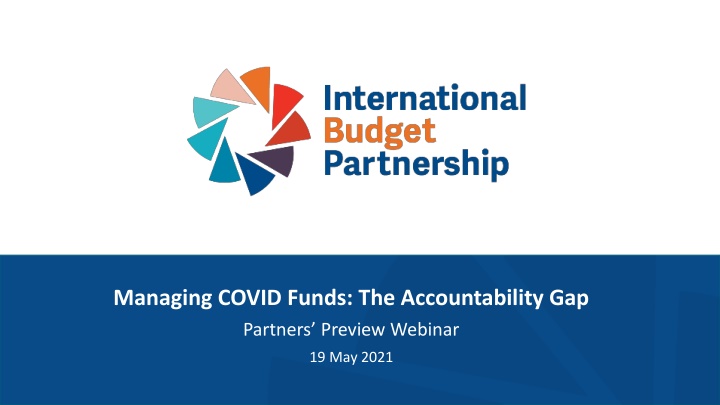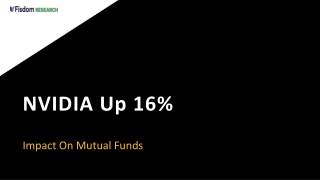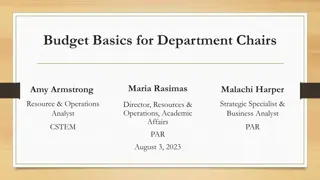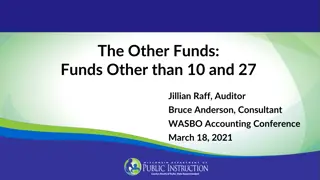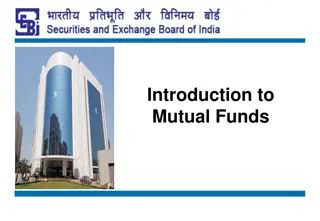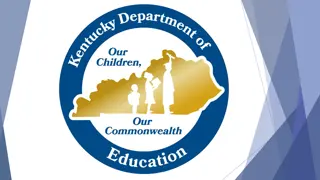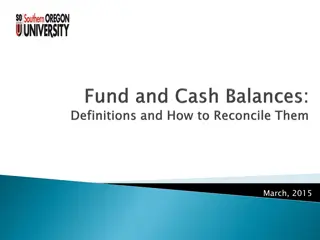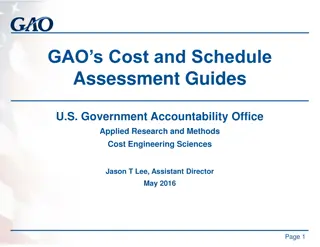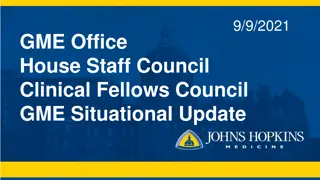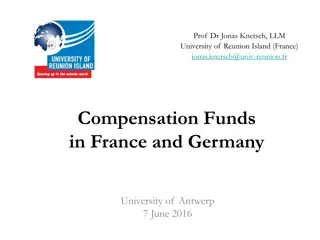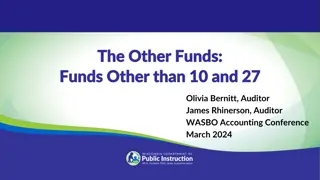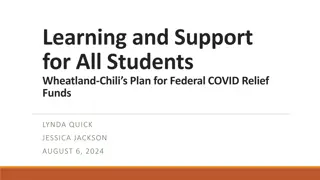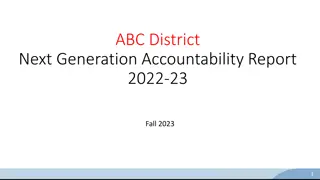Government Accountability in COVID-19 Funds Management
Governments worldwide mobilized trillions in fiscal responses to combat COVID-19. However, a report finds a lack of transparency and accountability in managing these funds, with key measures to enhance accountability not widely adopted. The study highlights shortcomings in accountability mechanisms, transparency in procurement, and citizen engagement opportunities.
Download Presentation

Please find below an Image/Link to download the presentation.
The content on the website is provided AS IS for your information and personal use only. It may not be sold, licensed, or shared on other websites without obtaining consent from the author.If you encounter any issues during the download, it is possible that the publisher has removed the file from their server.
You are allowed to download the files provided on this website for personal or commercial use, subject to the condition that they are used lawfully. All files are the property of their respective owners.
The content on the website is provided AS IS for your information and personal use only. It may not be sold, licensed, or shared on other websites without obtaining consent from the author.
E N D
Presentation Transcript
Managing COVID Funds: The Accountability Gap Partners Preview Webinar 19 May 2021
**Reminder** OBS COVID Module results are embargoed until May 24. Global Launch Event on May 24: We hope you can join and share the registration link with others would could be interested! https://www.eventbrite.com/e/managing-covid- funds-a-global-scorecard-of-accountability- registration-151828201237
Mobilizing Resources As COVID-19 swept across the globe, governments acted swiftly to meet the needs of their people. At the end of 2020, governments had mobilized a staggering $14 trillion in fiscal policy responses of different types. 3
The call for transparent government responses Governments were urged to keep the receipts to ensure these massive resources reached those who needed them most. Implementing transparency and accountability mechanisms would also help governments build back better. 4
IBP and civil society response Working with the same civil society researchers who conduct the Open Budget Survey research, IBP documented almost 400 emergency fiscal policy packages and assessed them on three pillars: public access to relevant information adequate oversight arrangements opportunities for citizen engagement 5
Key findings Overall. Governments are falling short of managing their fiscal policy response to the crisis in a transparent and accountable manner. More than two thirds of the governments we looked at, across many regions and income levels, have only provided limited or minimal levels of accountability in the introduction and implementation of their early fiscal policy responses. 6
1. Governments failed to adopt key measures to enhance accountability in their relief packages In only1/4of countries were auditors able to produce and publish audit reports 1/2 of governments published little information on implementation of policy initiatives 2/3of countries failed to follow transparent procurement procedures 7
2. The role of legislatures has been limited during the pandemic Only about 1/4of legislatures regularly received and debated reports on the implementation of COVID-19 response policies, and even fewer received and debated related audit reports 1/2of governments introduced fiscal policy measures through executive decrees, side-stepping normal legislative and approval process and preventing public debate 8
3. Citizen participation in the formulation and execution of COVID policy responses is virtually non-existent The public was excluded from having a voice in policy decisions and implementation during the pandemic, depriving governments of contributions which could greatly improve the effectiveness of their actions 4. Times of crisis can be moments of innovation Many governments took action to make useful information available to their citizens, and to specific groups of beneficiaries 9
Some countries showed that a better way is possible: Chile and the Philippines reoriented ongoing participation mechanisms to ensure citizen engagement during the pandemic Ecuador launched an open data platform with all COVID-19-related procurement contracts Jamaica published three concurrent audit reviews of the government s cash transfer program Canada, the Philippines and Sweden published a Gender Impact Assessment of their COVID-19 response Indonesia set up a website providing details of government policies for various actors, including links to relevant policies, infographics and government contacts Nepal The Parliamentary Accounts Committee investigated irregularities in procuring medical equipment and supplies to hold to account those responsible 10
Recommendations 1. Governments can act now to strengthen accountability in ongoing responses to the COVID crisis. 2. Governments can strengthen capacities and basic systems for accountability in the annual budget cycle, to be better prepared for future crises. 3. International actors can support governments to be fully open and accountable in their fiscal policy response to present and future crises 11
Methodology 1. How was the questionnaire designed? 2. How were relevant packages identified? 3. How were countries scored? 4. How is this different from the Open Budget Survey? 12
